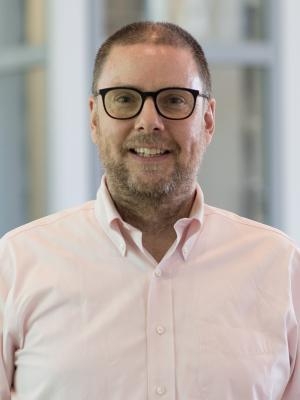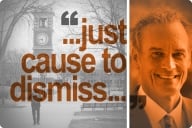You have /5 articles left.
Sign up for a free account or log in.
Two things that I’m endlessly curious about are alternative academics and academic librarians. Wendel Cox is both. Wanting to learn more about Wendel’s work, background and advice, I asked if he’d be willing to engage in this public dialogue. He agreed, and our conversation is below.
Q: Tell us about your job as a research and learning librarian for humanities and social sciences at Dartmouth. What is a typical day like?

A: No typical day exists, given how a simple question or request can become an unexpected adventure for me and many other librarians. Still, there are duties specific to my current position that make up much of my work. I’m principally concerned with teaching faculty, staff and students how to use the resources available to them to satisfy their research and information needs. I’m the liaison to three departments at Dartmouth: English and Creative Writing, Government, and History. I find myself addressing a discipline’s distinct needs and expectations in some instances or needs common to most disciplines in others. For anyone who has ever driven a car with a manual transmission, I would compare the constant disciplinary changes to shifting gears—when it works, it’s smooth and gratifying; when it doesn’t work, it’s immediately and painfully apparent. Whether we’re talking about faculty or students, research often makes for unique information needs and requires personalized support in these disciplines. In addition to classroom instruction and workshops, I have hundreds of individual consultations scheduled with me every year.
As a liaison at Dartmouth, I’m also responsible for what we describe as one-time purchases—think books—in these fields. I contribute to collective decision-making about our spending on serials and databases. Unlike many academic librarians, I’m fortunate to have sufficient funds to purchase materials for our community. Still, I don’t think our community understands that I select each title from a sea of works. New systems allow us to purchase some titles only when a patron has expressed an interest in the work—what we refer to as evidence-based or demand-driven acquisition. We also pay to acquire the new publications of selected academic presses in blocs, vastly increasing the number of titles available to patrons at a fraction of the cost of individual purchases. Those systems allow me to spend my collecting time in pursuit of peoples, processes, experiences and presses that might not otherwise see such extensive representation in our collections. Such decisions rely on my knowledge and the information I have to inform my choices—and I am painfully aware every day of the limits of both.
Users praise librarians and express their love for libraries frequently. Nevertheless, I don’t think most faculty, staff or students at today’s higher education institutions fathom the labor or skill involved in preserving and providing access to information. Additionally, there’s nowhere near enough recognition of the nonlibrarians who make libraries work—programmers, shelvers, interlibrary loan specialists, acquisitions or circulation staff, to offer just a few examples. Nor do I think our patrons understand how wildly their images and expectations of libraries diverge from reality. Year after year—or, as with generative artificial intelligence, month by month and day by day—librarians and library staff have grappled with almost perpetual revolution for decades. Witnessing the chasm between assumptions and reality, the missed opportunities for deeper collaboration and even more transformative use of our resources is painful.
Q: You have a Ph.D. in history from the University of Minnesota and a master of library and information science (M.L.I.S.) from the University of Wisconsin at Milwaukee. What career path brought you to Dartmouth, and how did you decide you wanted to build a career as an academic librarian?
A: After I finished my doctorate in 1997, I had a postdoctoral fellowship at Arizona State University, which came with a project to develop and manage. No one—least of all me—understood what my project duties would entail. A small circle of faculty in ASU’s Department of History asked me to build an online community for students and scholars of the North American Indigenous experience associated with H-NET or Humanities and Social Sciences Online. I had exceptional students from the department’s graduate program to assist me. Most of those students are now tenured faculty and well-established scholars, and I still see many of them almost yearly at conferences. That experience with a developing online community and supporting its research and teaching needs convinced me libraries were the place to be. Halfway through my three years at ASU, I stopped looking for a traditional faculty position. It took a few years to get to library school, but I’ve been in libraryland, as I like to call it, for more than 20 years.
I’ve worked at various libraryland institutions in different roles, always connected with historical research. Essentially, those were the opportunities that presented themselves and which led to other similar opportunities. One slightly different turn here or there and I would have become a metadata librarian, a biomedical librarian or an assessment librarian.
Q: What advice might you have for Ph.D. students or those thinking about focusing their careers in the academic library world? What do you see as the pros and cons of an academic library versus a traditional faculty career?
A: One of the perennial questions for those with doctorates interested in library work is whether pursuing an M.L.I.S. is necessary. There are many paths to the contemporary academic library, but I recommend the library degree without reservation. It was an invaluable experience for me 20 years ago, and the pace of change for libraries and other memory institutions then and after that has meant a continual transformation of instruction and course content at library and information schools. You can make a career as a librarian without an ALA-accredited graduate degree, but I don’t know why you’d want to do so. I have to acknowledge, of course, that I also had no debts, because the University of Minnesota funded my doctorate and the University of Wisconsin at Milwaukee funded my library degree. I also had nothing to inhibit me from investing a year in another degree. I had a better-than-most understanding of information studies and librarianship before I went to library school, and it was still a revelation every day—a walk through the looking glass.
As for my career, I have the privilege of working with students without the slightest inhibition of evaluation and grading and its attendant anxieties and demands for all parties. I also have a lot of autonomy—far more than faculty or library administrators might assume, but just the right blend of freedom and responsibility in the eyes of my immediate supervisors at Dartmouth!








